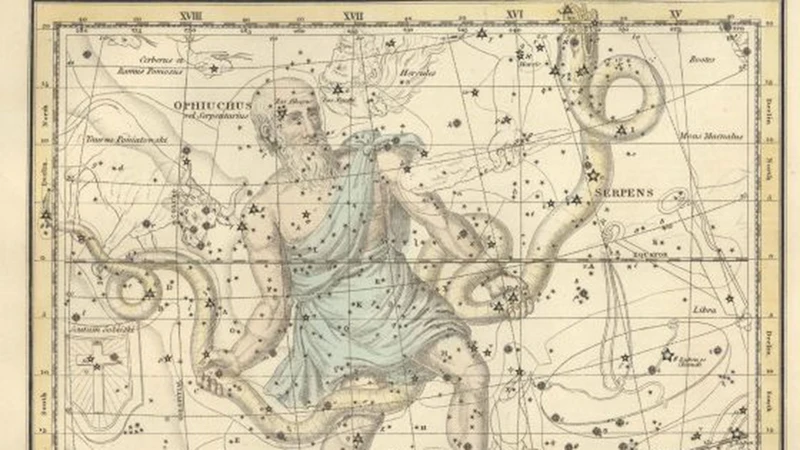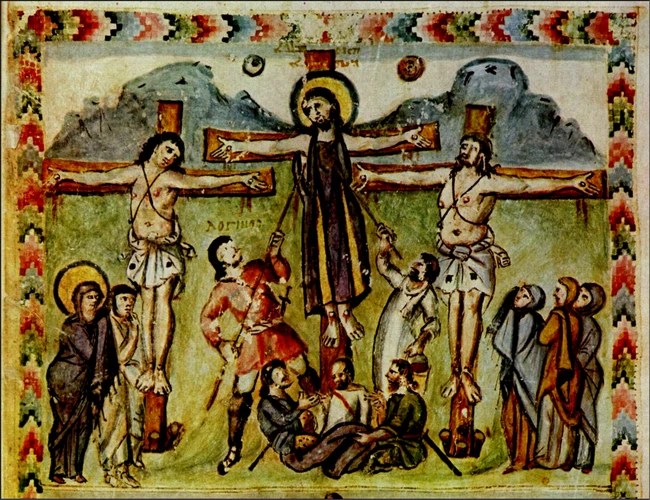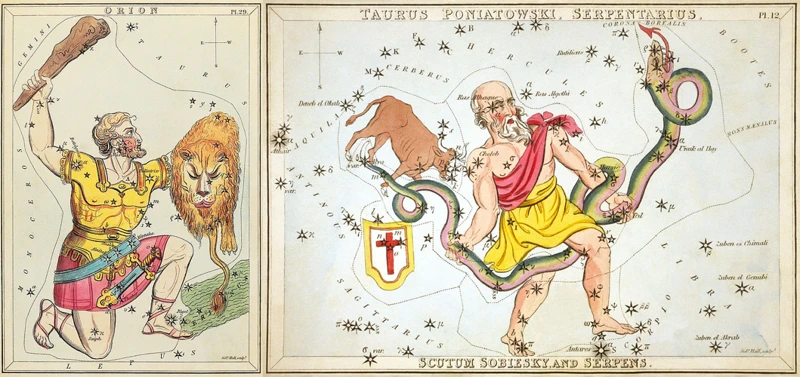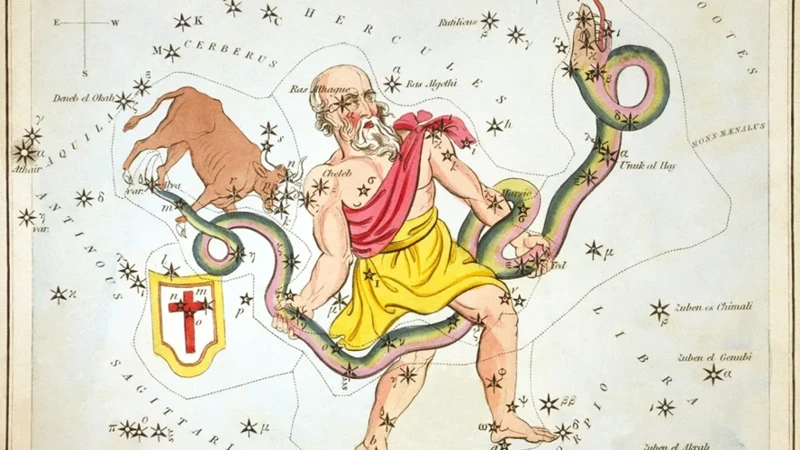When we think of the zodiac, the twelve familiar signs typically come to mind. However, there exists a thirteenth constellation that often goes unnoticed but holds great cultural significance in various ancient civilizations. This constellation is Ophiuchus, also known as the serpent bearer or the snake charmer. In this article, we will explore the cultural significance of Ophiuchus in different ancient civilizations, including Mesopotamia, Ancient Egypt, Greco-Roman culture, and Native American cultures. From mythological stories to astrological associations, Ophiuchus has captivated the imaginations of these societies and influenced their beliefs and traditions. Join us on a journey to uncover the hidden knowledge and rich cultural heritage associated with this enigmatic constellation.
Contents
- Ophiuchus in Mesopotamia
- Ophiuchus in Ancient Egypt
- Ophiuchus in Greco-Roman Culture
- Ophiuchus in Native American Cultures
- Conclusion
-
Frequently Asked Questions
- What is the significance of Ophiuchus in ancient civilizations?
- How did the Babylonians connect Ophiuchus with their mythology?
- What was the astrological significance of Ophiuchus in Mesopotamia?
- How did Ophiuchus symbolize healing in ancient Egypt?
- What astronomical observations were made about Ophiuchus in ancient Egypt?
- What role did Ophiuchus play in Greco-Roman culture?
- How did Ophiuchus become associated with medical symbolism in Greco-Roman culture?
- What links were seen between Ophiuchus and Native American cultures?
- How did Ophiuchus tie into indigenous beliefs in Native American cultures?
- What cosmological observations were made regarding Ophiuchus in Native American cultures?
- References
-
Frequently Asked Questions
- What is the significance of Ophiuchus in ancient civilizations?
- Did Ophiuchus have a specific meaning in Mesopotamia?
- What mythological interpretations were associated with Ophiuchus in Mesopotamia?
- How was Ophiuchus astrologically significant in Mesopotamia?
- What symbolism did Ophiuchus hold in Egyptian mythology?
- Were there any astronomical observations related to Ophiuchus in ancient Egypt?
- What religious significance did Ophiuchus hold in ancient Egypt?
- How did Greek mythology influence the perception of Ophiuchus in Greco-Roman culture?
- What astrological associations were given to Ophiuchus in Greco-Roman culture?
- How did Ophiuchus acquire medical symbolism in Greco-Roman culture?
- References
- Read More
Ophiuchus in Mesopotamia

In the ancient civilization of Mesopotamia, the presence of Ophiuchus held great significance. The Babylonians, known for their advanced knowledge of astrology, connected this constellation with various deities and celestial events. One such connection was made with the god Ninurta, a deity associated with healing and protecting against snakes. Ophiuchus was seen as a representation of Ninurta, symbolizing his divine power over both the earthly realm and the celestial spheres. The Babylonians also observed Ophiuchus during the summer solstice, considering it a pivotal moment in their agricultural calendar. This constellation marked the transition from the scorching heat to the start of the harvest season, signifying the cyclical nature of life and fertility. The cultural significance of Ophiuchus in Mesopotamia is a testament to the intricate interplay between celestial phenomena and religious beliefs of this ancient civilization. (source: /exploring-southern-hemisphere-constellations-guide/)
The Babylonian Connection
The Babylonians had a profound connection to Ophiuchus, incorporating it into their religious and astrological beliefs. They associated this constellation with their powerful god Ninurta, who was revered as a deity of healing and protection against snakes. Ophiuchus was seen as a representation of Ninurta’s divine power, symbolizing his ability to control both earthly and celestial domains. This association between Ophiuchus and Ninurta revealed the Babylonians’ belief in the interconnectedness of the cosmic and terrestrial realms. The Babylonians also recognized the significance of Ophiuchus during the summer solstice, a crucial moment in their agricultural calendar. This constellation marked the transition from intense heat to the start of the harvest season. It served as a reminder of the cyclical nature of life and fertility, reinforcing the Babylonians’ agricultural and fertility-based religious practices. The Babylonian connection to Ophiuchus highlights their profound understanding of celestial phenomena and their ability to weave them into their religious and cultural fabric. (source: /exploring-southern-hemisphere-constellations-guide/)
Mythological Interpretations
Mythological interpretations of Ophiuchus in various ancient civilizations provide fascinating insights into the cultural significance of this constellation. In Mesopotamian mythology, Ophiuchus is associated with the hero Gilgamesh, the legendary king of Uruk. According to the epic of Gilgamesh, he embarks on a quest to seek immortality and encounters various trials along the way. In one of these trials, Gilgamesh confronts a serpent that steals the plant of immortality. This encounter is often depicted as Gilgamesh wrestling with a serpent, drawing a parallel to the constellation of Ophiuchus, the serpent bearer. The story symbolizes the struggle between mortality and immortality, highlighting the human desire for eternal life.
In Egyptian mythology, Ophiuchus is linked to the goddess Isis. Isis is known as a powerful deity associated with magic, healing, and rebirth. She is often depicted with serpents, symbolizing her control over life and death. Ophiuchus represents the power of healing and rejuvenation, which aligns with the attributes of Isis. It is said that Isis used her magical abilities to resurrect her husband Osiris after he was killed by his brother. This tale underscores the association of Ophiuchus with healing and the restoration of life.
In Greek mythology, Ophiuchus is associated with Asclepius, the god of medicine and healing. Asclepius learned the art of healing from the centaur Chiron and became so skilled that he had the power to bring the dead back to life. This ability threatened the natural order of life and death, and as a result, Zeus struck Asclepius with a lightning bolt, killing him. In honor of his divine healing skills, Asclepius was immortalized as the constellation Ophiuchus. The presence of Ophiuchus in Greek mythology signifies the importance of medicine and the balance between life and death.
These mythological interpretations shed light on the cultural significance of Ophiuchus in ancient civilizations. The constellation’s connection to heroes, gods, and goddesses highlights its role as a symbol of power, healing, and the eternal quest for immortality. (source: /rising-popularity-ophiuchus-new-era-astrology/)
Astrological Significance
The astrological significance of Ophiuchus in Mesopotamia was multifaceted and played a vital role in shaping their beliefs and practices. In Babylonian astrology, Ophiuchus was associated with the healing arts and was considered a powerful sign for individuals born during its period of influence. Those born under Ophiuchus were believed to possess traits of wisdom, intuition, and the ability to heal others. The celestial positioning of Ophiuchus in the zodiac also held importance in determining the compatibility of individuals with other signs. Babylonian astrologers incorporated Ophiuchus into their intricate system of celestial divination, using it to provide insights into an individual’s personality, future prospects, and even compatibility in partnerships and marriages. The astrological influence of Ophiuchus extended beyond just personal horoscopes. Its placement in the zodiac was also believed to have an impact on the cosmic energies that influenced the fate and well-being of entire nations and civilizations. The Babylonians recognized the importance of understanding and harnessing the power of Ophiuchus in their astrological practices, firmly believing that it held profound insights into the mysteries of the universe and the destiny of humankind. (source: /astro-aspects-career-success/)
Ophiuchus in Ancient Egypt

In the realm of Ancient Egypt, Ophiuchus held deep symbolism and significance. The Egyptians associated this constellation with the god Imhotep, who was revered as a healer, physician, and scribe. Imhotep was believed to possess great wisdom and knowledge, particularly in the areas of medicine and magic. Ophiuchus, often represented as a serpent, was seen as a symbol of healing and protection against snake bites, aligning with Imhotep’s attributes as a divine physician. Additionally, the constellation was linked to the Nile River, as its appearance in the night sky coincided with the flooding season. This celestial occurrence had profound agricultural implications, as the Nile’s annual flooding was crucial for fertile soil and successful harvests. The connection between Ophiuchus, healing, and the Nile’s life-giving waters served to emphasize the importance of health, fertility, and the cyclical nature of Egyptian life and spirituality. The cultural significance of Ophiuchus in Ancient Egypt reflects the interconnectedness of religion, nature, and celestial observations in their rich cultural practices. (source: /exploring-southern-hemisphere-constellations-guide/)
Symbolism in Egyptian Mythology
Symbolism in Egyptian Mythology played a crucial role in the interpretation and understanding of Ophiuchus. In ancient Egypt, this constellation was associated with the god Imhotep, who was highly revered for his wisdom, healing abilities, and teachings. Imhotep was considered the patron deity of medicine and was often depicted as a serpent or with serpentine features. The serpent symbolism of Ophiuchus represented wisdom, rebirth, and transformation in Egyptian mythology. It was believed that Imhotep possessed immense knowledge of the healing arts, and the constellation served as a celestial representation of his divine wisdom. Additionally, the serpent symbolism in Egyptian mythology was closely connected to the goddess Wadjet, the protective deity of Lower Egypt. Wadjet was often depicted as a cobra and was associated with royalty, protection, and divine authority. The presence of Ophiuchus in Egyptian mythology and its relation to serpents showcased the deep cultural significance of this constellation in the healing and divine realms of ancient Egyptian civilization.
Astronomical Observations
The ancient Egyptians, with their deep fascination for the stars and the cosmos, made significant astronomical observations related to Ophiuchus. They closely studied the movements of this constellation, recognizing its presence in the night sky. The Egyptians noted that Ophiuchus lay along the ecliptic, the apparent path that the Sun takes across the celestial sphere. They observed that the Sun appeared to pass through Ophiuchus for a period of approximately 18 days, symbolizing a journey of rebirth and renewal. This alignment coincided with the Egyptian New Year, marking the beginning of the Nile flood, a vital event for their agricultural calendar. The Egyptians believed that the passage of the Sun through Ophiuchus played a role in this annual rejuvenation process. Additionally, they associated Ophiuchus with the gods Imhotep and Serapis, seeing it as a celestial representation of their healing and rejuvenating powers. This recognition of the astronomical significance of Ophiuchus demonstrates the Egyptians’ meticulous observations and their deep understanding of the celestial movements.
Religious Significance
In ancient Egypt, the constellation of Ophiuchus held significant religious meaning. Egyptians believed in the concept of the afterlife and the journey of the soul. Ophiuchus was associated with the god Imhotep, a deity associated with healing and wisdom. Imhotep was often depicted as a serpent-entwined figure, similar to the representation of Ophiuchus. This association tied Ophiuchus to the realm of divine knowledge and spiritual enlightenment. The Egyptians saw the constellation as a symbol of rebirth and transformation, as it was believed that the journey of the soul involved shedding its old skin and attaining higher spiritual understanding. Ophiuchus also played a role in the myth of the solar barge, where the sun god Ra traveled through the night sky, facing challenges and obstacles during his nightly journey. The presence of Ophiuchus along the celestial path was seen as a protective force, guiding the sun god through the treacherous night and ensuring his safe return with the dawn. This religious significance attributed to Ophiuchus demonstrates the deep spiritual beliefs of the ancient Egyptians and their connection between the celestial realm and human existence.
Ophiuchus in Greco-Roman Culture

In Greco-Roman culture, Ophiuchus held a significant place in both mythology and astrology. The influence of Greek mythology can be seen in the association of Ophiuchus with the legendary healer Asclepius. Asclepius was revered for his ability to cure diseases and bring the dead back to life. Ophiuchus, often depicted as a man holding a serpent, represented Asclepius himself and became a symbol of healing and medicine. The astrological significance of Ophiuchus in Greco-Roman culture is notable as well. It is believed that individuals born under this sign possess exceptional healing abilities and are drawn to careers in medicine and the sciences. Ophiuchus has carved its place in the cultural tapestry of the Greco-Roman world, blending mythology, astrology, and the pursuit of knowledge. (source: /rising-popularity-ophiuchus-new-era-astrology/)
The Influence of Greek Mythology
The influence of Greek mythology on the significance of Ophiuchus cannot be understated. In Greek mythology, Ophiuchus is associated with the legendary figure of Asclepius, the god of medicine and healing. Asclepius was believed to possess immense knowledge and the ability to cure even the most incurable diseases. According to myth, Asclepius acquired his healing powers by observing a snake. This connection to serpents and healing became synonymous with Ophiuchus, which became a symbol of medical and healing professions in ancient Greece. The staff of Asclepius, a rod entwined by a single serpent, is still used as a symbol of medicine today. The influence of Greek mythology also extends to the astrological associations of Ophiuchus. In the Greek zodiac, Ophiuchus is sometimes considered as the thirteenth sign, representing those born between November 29 and December 17. This incorporation of Ophiuchus into the zodiac system signifies the lasting impact of Greek mythology on Western astrology. (source: /rising-popularity-ophiuchus-new-era-astrology/)
Astrological Associations
The astrological associations of Ophiuchus in Greco-Roman culture are intriguing and provide further insight into the cultural significance of this constellation. In Greek mythology, Ophiuchus is often identified with the legendary healer Asclepius, who had the ability to resurrect the dead. Asclepius was known for his skills in medicine and was revered as a divine figure associated with healing and rejuvenation. This connection between Ophiuchus and Asclepius led to Ophiuchus being associated with healing, medicine, and the medical profession in astrology. Those born under the Ophiuchus sign are believed to possess traits such as wisdom, intuition, healing abilities, and a strong desire to help others. The association with healing also extends to the symbol of the serpent, which is intertwined with Ophiuchus in Greek mythology. The symbol of the serpent represents transformation, rebirth, and the shedding of old skin, further emphasizing the transformative power associated with this constellation. (source: /astro-aspects-career-success/)
Medical Symbolism
The constellation of Ophiuchus also holds significant medical symbolism in Greco-Roman culture. In this context, Ophiuchus is often associated with the Greek god Asclepius, the god of healing and medicine. Asclepius was depicted holding a staff with a serpent entwined around it, known as the Rod of Asclepius, which has now become the universal symbol of medicine. The connection between Ophiuchus and Asclepius further underscores the association of this constellation with healing and healthcare practices. In fact, many ancient medical institutions and temples dedicated to Asclepius incorporated representations of Ophiuchus in their architecture and artwork. These establishments were not only places for physical healing but also served as centers of spiritual and psychological wellbeing. The serpent symbolism in relation to Ophiuchus signifies rejuvenation, transformation, and the shedding of old skin, all of which are metaphorical representations of healing and renewal. The medical symbolism associated with Ophiuchus in Greco-Roman culture highlights the profound impact that this constellation had on the concept of medicine and its practitioners during ancient times.
Ophiuchus in Native American Cultures

In Native American cultures, Ophiuchus is often associated with profound spiritual beliefs and practices. Different tribes across the Americas have recognized and incorporated this constellation into their cosmological observations. For example, some indigenous tribes view Ophiuchus as a powerful shaman figure who possesses the ability to communicate with the spirit world and heal the sick. The serpent symbolism within Ophiuchus is particularly significant, representing transformation, wisdom, and the cycles of life and death. The Lakota Sioux, for instance, view Ophiuchus as an embodiment of the snake spirit and believe that under its influence, individuals can tap into their spiritual potential and gain insight into the mysteries of the universe. In Native American cultures, the recognition of Ophiuchus is a testament to the deep connection and reverence for nature, spirituality, and ancestral traditions.
Connections to Indigenous Beliefs
The constellation of Ophiuchus holds profound connections to the indigenous beliefs of various Native American cultures. Across different tribes, Ophiuchus is often associated with the healing arts, wisdom, and spiritual transformation. In some traditions, Ophiuchus is seen as a medicine person or shaman, possessing exceptional knowledge of herbs, remedies, and the cosmic energies that influence health and well-being. The serpent symbolism of Ophiuchus is also prevalent in indigenous beliefs, representing the balance between life and death, creation and destruction, and the cyclical nature of existence. The serpent is considered a powerful spirit guide, representing transformation, regeneration, and spiritual awakening. Native American cultures view Ophiuchus as a celestial guardian, guiding souls on their journey between the earthly and spiritual realms. The connection to indigenous beliefs further highlights the reverence and respect for the natural world and its cosmic manifestations in these cultures. The rich intertwining of spiritual and celestial significance in relation to Ophiuchus offers a deeper understanding of the profound connections indigenous peoples have with the cosmos.
Shamanic Traditions
Shamanic traditions in Native American cultures have long revered the constellation of Ophiuchus, attributing profound spiritual and healing qualities to its presence in the night sky. Shamans, revered spiritual leaders and healers, often looked to Ophiuchus as a guiding force in their rituals and practices. In many Native American tribes, the serpent bearer was associated with the sacred knowledge of herbal medicine and the ability to communicate with both the physical and spiritual realms. The constellation’s position in the sky, aligned with the Milky Way, was believed to represent the cosmic axis, providing a bridge between the earthly and divine realms. Shamans would utilize their connection to Ophiuchus during ceremonies, seeking guidance, wisdom, and healing energy. The serpent symbolism within Ophiuchus was particularly resonant, as snakes were seen as guardians of the spirit world and bringers of transformation. The constellation served as a powerful reminder of the shaman’s role as a mediator between the human and spirit realms, harnessing the celestial energies for the betterment of their community. The reverence for Ophiuchus within shamanic traditions is a testament to the profound spiritual connection Native American cultures held with the natural world and the cosmos. (source: /exploring-southern-hemisphere-constellations-guide/)
Cosmological Observations
Cosmological observations played a significant role in understanding the cultural significance of Ophiuchus in Native American cultures. Indigenous communities across North America saw the constellation as a celestial guide, directing their spiritual practices, agricultural cycles, and navigation. The alignment of Ophiuchus with other prominent constellations helped Native American tribes determine the change of seasons and the timing of ceremonies and rituals. For example, in some tribes, Ophiuchus aligned with the Pleiades cluster, marking the arrival of the spring equinox and signaling the start of planting and the renewal of life. Additionally, the movement of Ophiuchus across the night sky was interpreted as a celestial journey, representing the cyclical patterns of creation, destruction, and rebirth. These cosmological observations deepened the cultural connection of Native Americans to the land, the cosmos, and their own spiritual beliefs, highlighting the profound interconnectedness between the celestial realm and human existence.
Conclusion

The cultural significance of Ophiuchus in different ancient civilizations is a testament to the universal fascination with the stars and their influence on human life. From Mesopotamia to Ancient Egypt, Greco-Roman culture, and Native American traditions, Ophiuchus has left its mark in mythologies, religious beliefs, and astronomical observations. In Mesopotamia, Ophiuchus was associated with healing and protection, symbolizing the divine power of Ninurta. In Ancient Egypt, it held religious symbolism and was observed as part of astronomical observations. Greek and Roman cultures saw Ophiuchus as an influential figure in mythology and astrology, with connections to medicine. In Native American cultures, Ophiuchus resonated with shamanic traditions and cosmological observations.
These diverse interpretations and associations reveal the deep human connection to the cosmos and our desire to understand the mysteries of the universe. Ophiuchus has served as a bridge between the earthly and celestial realms, embodying various aspects of human existence such as healing, protection, wisdom, and spirituality.
As we explore the rich cultural heritage and symbolism of Ophiuchus, it becomes clear that the fascination with this thirteenth constellation transcends time and geographical boundaries. Its presence in ancient civilizations highlights the universality of our human quest for meaning and our profound relationship with the stars.
In conclusion, Ophiuchus presents a captivating subject that unifies various ancient cultures through its symbolisms and interpretations. Whether worshipped as a deity, associated with astrological signs, or revered for its medicinal significance, Ophiuchus has undoubtedly left an indelible mark on human civilization. The study of Ophiuchus opens up a window into the cultural and spiritual beliefs of our ancestors, reminding us of the enduring power of celestial bodies to inspire and guide humanity throughout the ages.
Frequently Asked Questions

What is the significance of Ophiuchus in ancient civilizations?
Ophiuchus holds significant cultural and religious importance in various ancient civilizations. It is often associated with healing, protection against snakes, and the transition of seasons.
How did the Babylonians connect Ophiuchus with their mythology?
The Babylonians linked Ophiuchus to the god Ninurta, who was revered for his healing abilities and protection against serpents. This constellation represented Ninurta’s power and influence.
What was the astrological significance of Ophiuchus in Mesopotamia?
In Mesopotamian astrology, Ophiuchus marked the summer solstice, a vital moment in their agricultural calendar. It symbolized the transition from extreme heat to the beginning of the harvest season.
How did Ophiuchus symbolize healing in ancient Egypt?
Ancient Egyptians associated Ophiuchus with the serpent symbolism found in their mythology. They believed that the constellation represented the healing abilities of gods, particularly the god Imhotep.
What astronomical observations were made about Ophiuchus in ancient Egypt?
Ancient Egyptians recognized the positioning of Ophiuchus in their night sky and observed its relationship with other constellations. This helped them understand cosmic cycles and influenced their religious practices.
What role did Ophiuchus play in Greco-Roman culture?
In Greco-Roman culture, Ophiuchus was influenced by Greek mythology. It represented the legendary physician Asclepius and held associations with medicine, healing, and serpent symbolism.
How did Ophiuchus become associated with medical symbolism in Greco-Roman culture?
Ophiuchus’ association with Asclepius, the god of medicine, led to its connection with healing and medical symbolism. The serpent-entwined rod, known as the Rod of Asclepius, is a symbol commonly associated with medicine to this day.
What links were seen between Ophiuchus and Native American cultures?
Native American cultures recognized Ophiuchus and incorporated it into their beliefs and cosmology. It connected them to celestial realms, indigenous spirituality, and shamanic traditions.
How did Ophiuchus tie into indigenous beliefs in Native American cultures?
Ophiuchus was seen as a guide for spiritual journeys and a conduit for communication between the physical and spiritual worlds. It played a role in rituals, vision quests, and the understanding of celestial energies.
What cosmological observations were made regarding Ophiuchus in Native American cultures?
In Native American cultures, Ophiuchus’ position in the night sky was observed and interpreted in relation to other constellations. These observations contributed to their understanding of celestial patterns and their connection to earthly life.
References
- Ophiuchus – Students | Britannica Kids | Homework Help
- Ophiuchus, the 13th Sign of the Zodiac – BBVA Openmind
Frequently Asked Questions

What is the significance of Ophiuchus in ancient civilizations?
Ophiuchus holds great cultural and spiritual significance in various ancient civilizations. It is revered for its unique position in the sky and its association with healing, astrology, and mythology.
Did Ophiuchus have a specific meaning in Mesopotamia?
In Mesopotamia, Ophiuchus was connected to the Babylonian culture. It held a significant place in their astrological and mythological beliefs, representing various celestial and earthly powers.
What mythological interpretations were associated with Ophiuchus in Mesopotamia?
Ophiuchus was often linked to the myth of Gilgamesh, the legendary king of Uruk. In this myth, Ophiuchus symbolized immortality and the eternal quest for divine knowledge.
How was Ophiuchus astrologically significant in Mesopotamia?
In Mesopotamian astrology, Ophiuchus was regarded as the thirteenth zodiac sign. It influenced the interpretation of horoscopes and was believed to grant individuals traits associated with healing, wisdom, and serpents.
What symbolism did Ophiuchus hold in Egyptian mythology?
In Egyptian mythology, Ophiuchus was associated with the god Imhotep, who was considered a divine healer and wise sage. Ophiuchus symbolized the power of healing and ancient medical knowledge.
Astronomically, the constellation of Ophiuchus was visible in the night sky during specific times of the year. It was believed to align with the Nile River’s flooding, signifying the renewal and fertility associated with the annual inundation.
What religious significance did Ophiuchus hold in ancient Egypt?
Ophiuchus was often linked to the mythological serpent-deity Apophis, who represented chaos and disorder. It was believed that Ophiuchus played a role in maintaining cosmic balance and protecting against destructive forces.
How did Greek mythology influence the perception of Ophiuchus in Greco-Roman culture?
Within Greco-Roman culture, Ophiuchus was associated with the legendary centaur Chiron, who possessed great wisdom and healing abilities. Ophiuchus became a symbol of knowledge, medicine, and the pursuit of enlightenment.
What astrological associations were given to Ophiuchus in Greco-Roman culture?
In astrological interpretations, Ophiuchus represented people born between November 30 and December 17. It was believed to influence individuals with traits such as versatility, a quest for truth, and the potential for spiritual transformation.
How did Ophiuchus acquire medical symbolism in Greco-Roman culture?
In Greco-Roman culture, Ophiuchus was associated with the rod of Asclepius, the god of healing. This association gave Ophiuchus a strong medical symbolism, representing the noble pursuit of healing and the advancement of medical knowledge.







